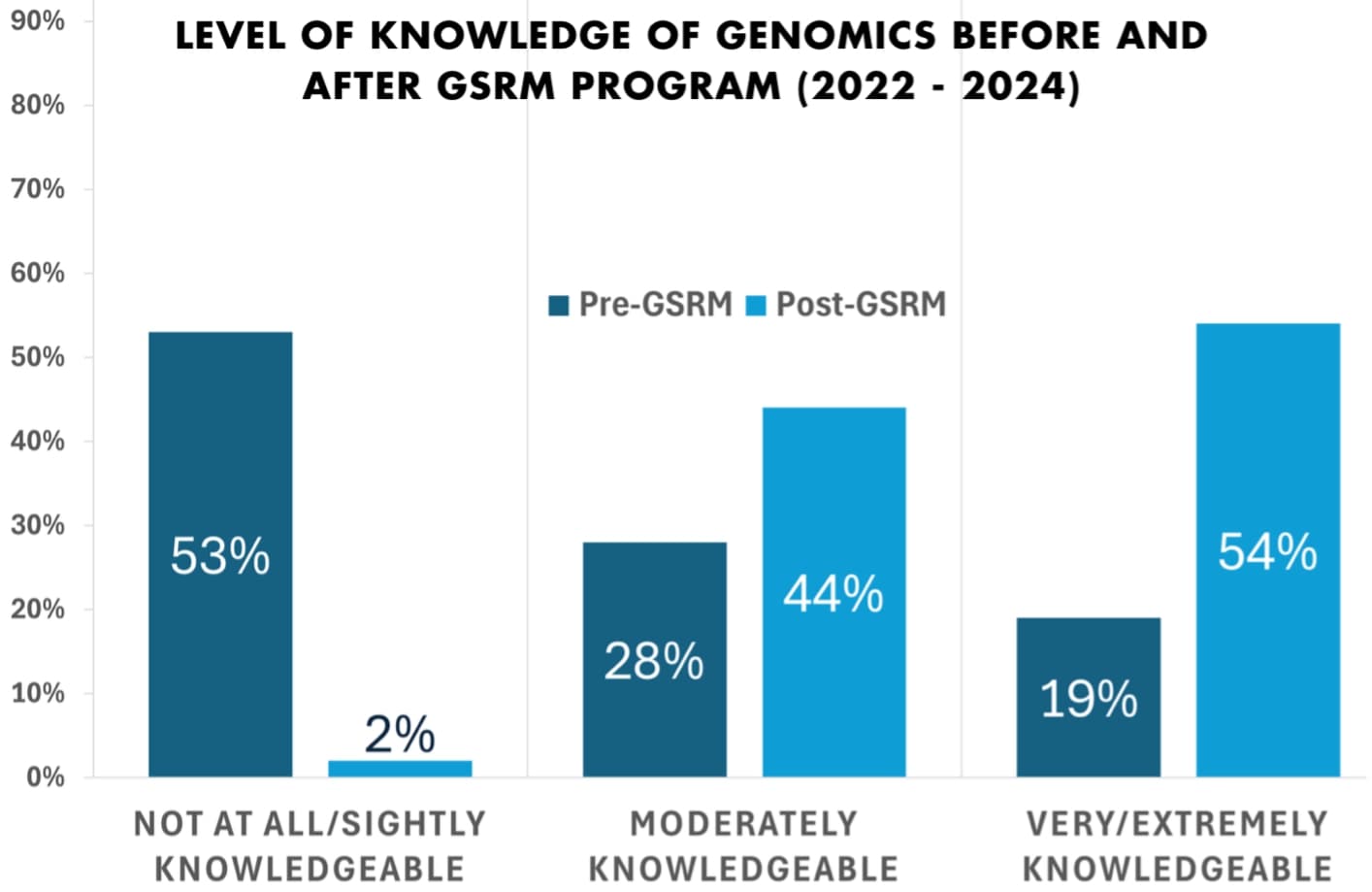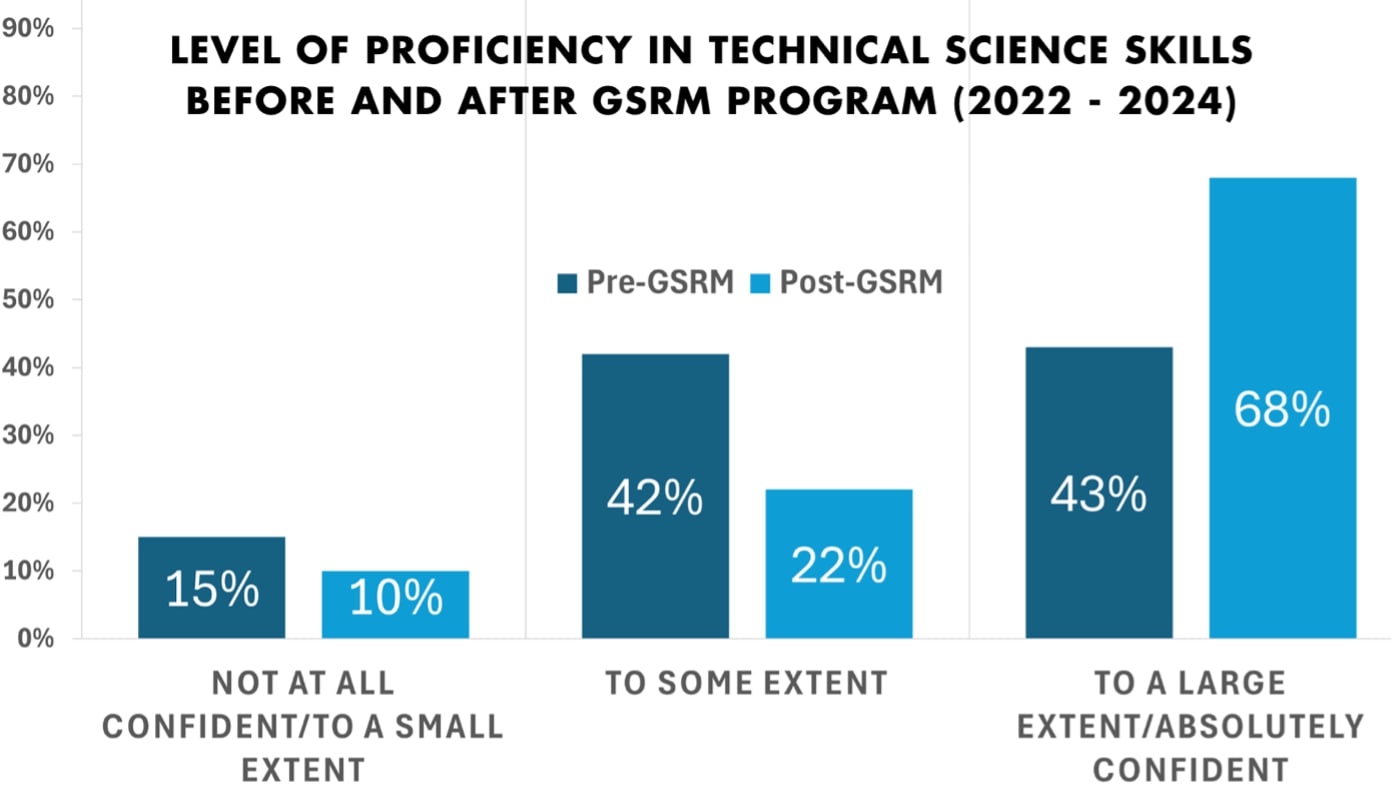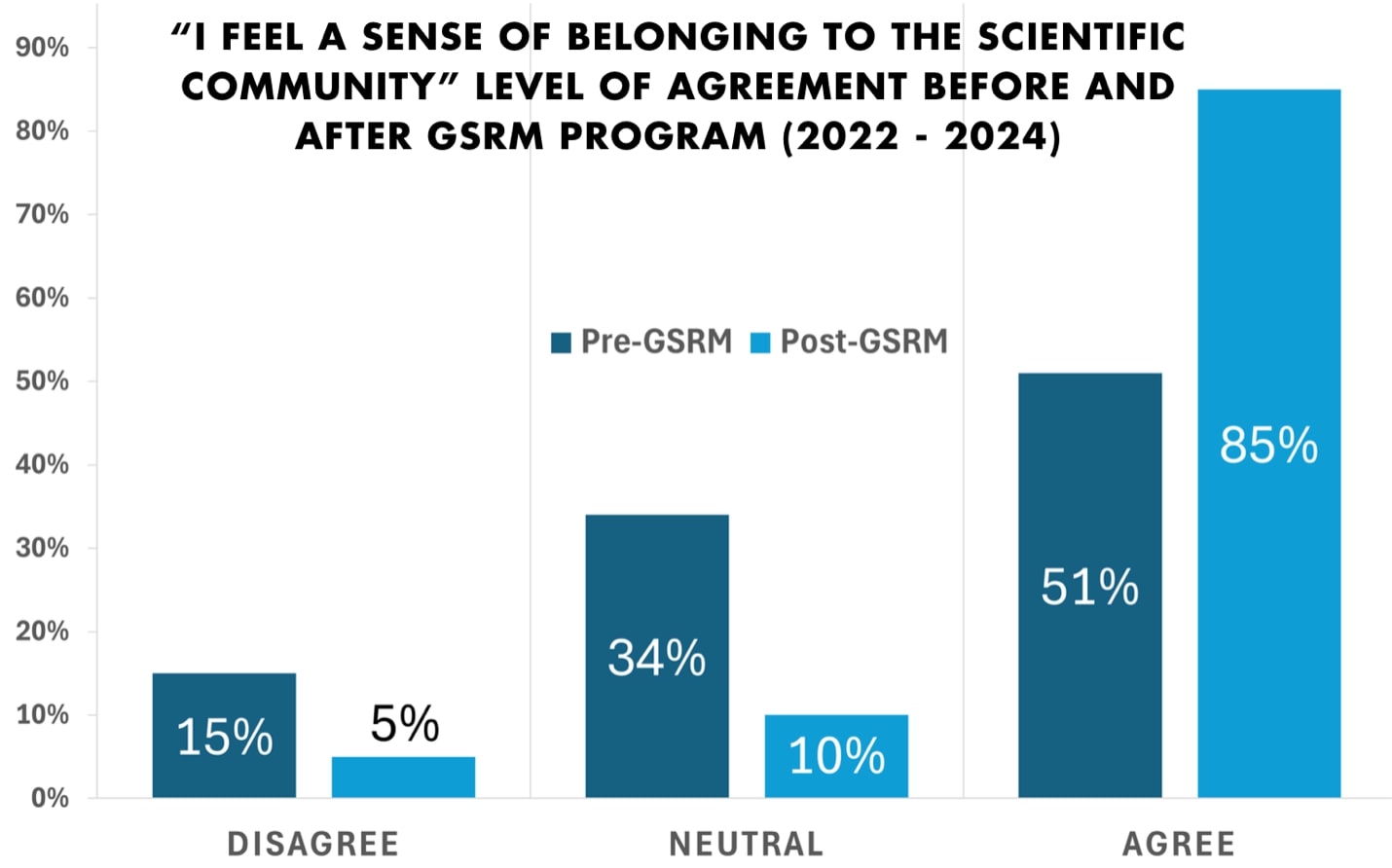College of Social and Behavioral Science
115 Assessing the Impact of the Genomic Summer Research for Magnificents (GSRM) Internship Program
Isabella DiNardo; Akiko Kamimura; Rebecca Adams; H. Joseph Yost; Maija Holsti; and Gloria Slattum
Faculty Mentor: Akiko Kamimura (Sociology, University of Utah)
Future advancements in STEM fields require diversity in ideas, approaches, and technical skills. Since 2019, the Genomic Summer Research for Minorities Magnificents (GSRM) Internship Program has provided opportunities for underrepresented (UR) college students, as defined by the National Institute of Health, to participate in genomics-related research and STEM fields. The GSRM program aims to support and promote retention of UR students in STEM by examining the barriers encountered by these students and the benefits gained during or after their internship experience. This study assessed the efficacy of three interventions utilized by the GSRM Program, in which students were paired with a research mentor and a co-mentor who provided an opportunity for hands-on laboratory research experience and fostered a sense of belonging in STEM. Specifically, participants’ understanding of genomics, the proficiency of their technical laboratory/computational skills, and their overall sense of belonging to the scientific community were measured before and after the completion of the GSRM program using pre/post-survey data from 2022-2024. Upon analysis, there were statistically significant increases in each of these three metrics. Introducing a wide range of students to genomics may ultimately catalyze the advancement of the field and diversify the STEM workforce. Together, the improvements reflect the GSRM program’s effectiveness in preparing scholars for STEM careers, which is important to inspire advancements in science and medicine that may aid a broader representation of the population.
Graphs



Bibliography
Bianconi, I., Aschbacher, R., & Pagani, E. (2023). Current Uses and Future Perspectives of Genomic Technologies in Clinical Microbiology. Antibiotics, 12(11), 1580–1580. https://doi.org/10.3390/antibiotics12111580
Davis, R. D., Wilson-Kennedy, Z. S., & Spivak, D. (2021). International Research Experiences in the Development of Minority Scientists. Frontiers in Education, 6(674673). https://doi.org/10.3389/feduc.2021.674673
Diversity and STEM: Women, Minorities, and Persons with Disabilities 2023 | NSF – National Science Foundation. (2023). Retrieved from ncses.nsf.gov website: https://ncses.nsf.gov/pubs/nsf23315/report/the-stem-workforce
Diversity Matters | Diversity in Extramural Programs. (n.d.). Extramural-Diversity.nih.gov; National Institutes of Health. https://extramural-diversity.nih.gov/diversity-matters
Eagan, M. K., Hurtado, S., Chang, M. J., Garcia, G. A., Herrera, F. A., & Garibay, J. C. (2013).
Making a Difference in Science Education. American Educational Research Journal, 50(4), 683–713. https://doi.org/10.3102/0002831213482038
Gross, B. (2017, April 14). Diversity in STEM Part 2: Barriers to Success for Underrepresented Minority Students. Retrieved March 5, 2024, from Milwaukee Area Science Advocates website: https://milwaukeescience.org/diversity-in-stem-part-2-barriers-to-success-for- underrepresented-minority-students/
Hansen, M. J., Palakal, M., & White, L. (2023). The Importance of STEM Sense of Belonging and Academic Hope in Enhancing Persistence for Low-Income, Underrepresented STEM Students. Journal for STEM Education Research. https://doi.org/10.1007/s41979-023-00096-8
Hunter, A.-B., Laursen, S. L., & Seymour, E. (2007). Becoming a scientist: The role of undergraduate research in students’ cognitive, personal, and professional development. Science Education, 91(1), 36–74. https://doi.org/10.1002/sce.20173
Kricorian, K., Seu, M., Lopez, D., Ureta, E., & Equils, O. (2020). Factors influencing participation of underrepresented students in STEM fields: matched mentors and mindsets. International Journal of STEM Education, 7(1). https://doi.org/10.1186/s40594-020-00219-2
Neerjah Skantharajah, Shakuntala Baichoo, Boughtwood, T., Casas-Silva, E., Subhashini Chandrasekharan, Dave, S., Khalid Fakhro, André Barbosa Vargas, Gayle, S. S., Vivek Kumar Gupta, Hendricks-Sturrup, R., Hobb, A. E., Li, S., Llamas, B., Lopez-Correa, C., Machirori, M., Melendez-Zajgla, J., Mareike Annemarie Millner, Page, A., & Paglione, L. D. (2023).
Equity, diversity, and inclusion at the Global Alliance for Genomics and Health. Cell Genomics, 3(10), 100386–100386. https://doi.org/10.1016/j.xgen.2023.100386
Nominal Group Technique. (n.d.). Chess.wisc.edu; NIATx. https://chess.wisc.edu/niatx/content/contentpage.aspx?NID=147
What is precision medicine? (2022, May 17). Medlineplus.gov; MedlinePlus Genetics. https://medlineplus.gov/genetics/understanding/precisionmedicine/definition/#:~:text=According%20to%20the%20Precision%20Medicine
Media Attributions
- 137489262_genomics_knowledge_graph
- 146879582_technical_skills_graph
- 146879585_sense_of_belonging_graph

